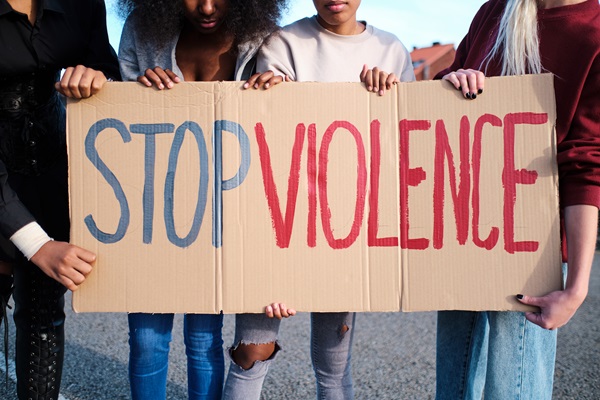
November 25th marks the start of the United Nations’ UNiTE campaign, which brings attention to one of the most serious human rights violations in the world: violence against women and girls. Globally, about one in three women has experienced physical or sexual violence at least once in her life. This violence happens in many places - at home, in workplaces, online - and is made worse by conflict and climate change.
The UNiTE campaign (November 25 – December 10) aims to raise awareness about this growing crisis and to demand accountability and action from leaders at every level.
One of the most important steps toward ending violence against women and girls is having open, honest conversations. We need to end the shame and victim-blaming that too often silence survivors and to challenge the sense of impunity that allows perpetrators to keep using violence. Listening to and believing women’s and girls’ stories is essential, especially because gender-based violence is severely underreported. In British Columbia, only about 6% of sexual assaults were reported to police in 2019. Nearly one in two women has experienced intimate partner violence since age 15, yet only about 20% of those cases are reported.
There are many barriers to reporting violence. Some survivors do not trust the justice system, which has often failed to protect or support them. Systemic discrimination, including sexism and racism, adds further harm. Survivors may also fear retaliation, feel ashamed or blamed, depend financially on their abuser, or downplay their experiences by thinking it’s “not that bad.”
Ending violence requires collective effort. We can all help by showing care and compassion, creating safer communities, believing survivors, and supporting them in practical ways. This can include donating to a local women’s shelter, challenging sexist or ableist attitudes, and using our privilege to ensure others can live safely and without fear.
If you are a woman or girl experiencing violence, or if you know someone who is, help is available. Many resources and supports exist in local communities, across B.C., and online. Here are some steps you can take:
- Reach out for help - Call or text a trusted friend, family member, or teacher, or contact a confidential support line such as VictimLink BC (available 24/7 at 1-800-563-0808 or by text at 604-836-6381). In Alberta you can call the Victims of Crime Assistance Program at 780-427-7217 or toll free at 310-0000.
- If you are worried about someone else, check in with them privately and let them know you believe them. Listen without judgment and help connect them to professional supports or emergency services if needed.
- Know your local resources - Many communities have women’s centres, transition houses, and crisis services that offer free, confidential help.
- Be an advocate - Speak up against sexist or abusive comments and behaviours, support equality initiatives at school and in your community, and educate yourself about consent, healthy relationships, and bystander intervention.
- Take care of yourself - Learning and talking about violence can be emotionally heavy. It’s okay to step back, rest, and reach out for emotional support if you need it.
Together, through compassion, education, and action, we can help create a world where women and girls live safely, freely, and without fear.
Erin Williams, MA RCC
Walmsley EFAP
